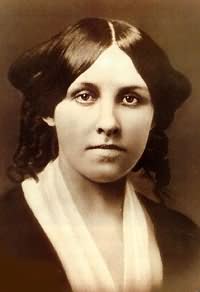|
The Wayside
The Wayside is a historic house in Concord, Massachusetts. The earliest part of the home may date to 1717. Later it successively became the home of the young Louisa May Alcott and her family, who named it Hillside, author Nathaniel Hawthorne and his family, and children's writer Margaret Sidney. It became the first site with literary associations acquired by the National Park Service and is now open to the public as part of Minute Man National Historical Park. Early history The first record of the Wayside property occurs in 1717. Minuteman Samuel Whitney was living in this house, which still retained most of its original appearance, on April 19, 1775, when British troops passed by on their way to the Battles of Lexington and Concord at Concord's Old North Bridge. During the years 1775 and 1776 the house was occupied by scientist John Winthrop during the nine months when Harvard College was moved to Concord. The Alcotts Shortly after the failure of the Fruitlands experiment, ed ... [...More Info...] [...Related Items...] OR: [Wikipedia] [Google] [Baidu] |
Louisa May Alcott
Louisa May Alcott (; November 29, 1832March 6, 1888) was an American novelist, short story writer, and poet best known as the author of the novel ''Little Women'' (1868) and its sequels ''Little Men'' (1871) and ''Jo's Boys'' (1886). Raised in New England by her Transcendentalism, transcendentalist parents, Abigail May and Amos Bronson Alcott, she grew up among many well-known intellectuals of the day, such as Ralph Waldo Emerson, Nathaniel Hawthorne, Henry David Thoreau, and Henry Wadsworth Longfellow. Alcott's family suffered from financial difficulties, and while she worked to help support the family from an early age, she also sought an outlet in writing. She began to receive critical success for her writing in the 1860s. Early in her career, she sometimes used pen names such as A. M. Barnard, under which she wrote lurid short stories and sensation novels for adults that focused on passion and revenge. Published in 1868, ''Little Women'' is set in the Alcott family home, Or ... [...More Info...] [...Related Items...] OR: [Wikipedia] [Google] [Baidu] |
Henry David Thoreau
Henry David Thoreau (July 12, 1817May 6, 1862) was an American naturalist, essayist, poet, and philosopher. A leading Transcendentalism, transcendentalist, he is best known for his book ''Walden'', a reflection upon simple living in natural surroundings, and his essay "Civil Disobedience (Thoreau), Civil Disobedience" (originally published as "Resistance to Civil Government"), an argument for disobedience to an unjust state. Thoreau's books, articles, essays, journals, and poetry amount to more than 20 volumes. Among his lasting contributions are his nature writing, writings on natural history and philosophy, in which he anticipated the methods and findings of ecology and environmental history, two sources of modern-day environmentalism. His literary language, literary style interweaves close observation of nature, personal experience, pointed rhetoric, symbolic meanings, and historical lore, while displaying a poetic sensibility, philosophical Asceticism, austerity, and attent ... [...More Info...] [...Related Items...] OR: [Wikipedia] [Google] [Baidu] |


